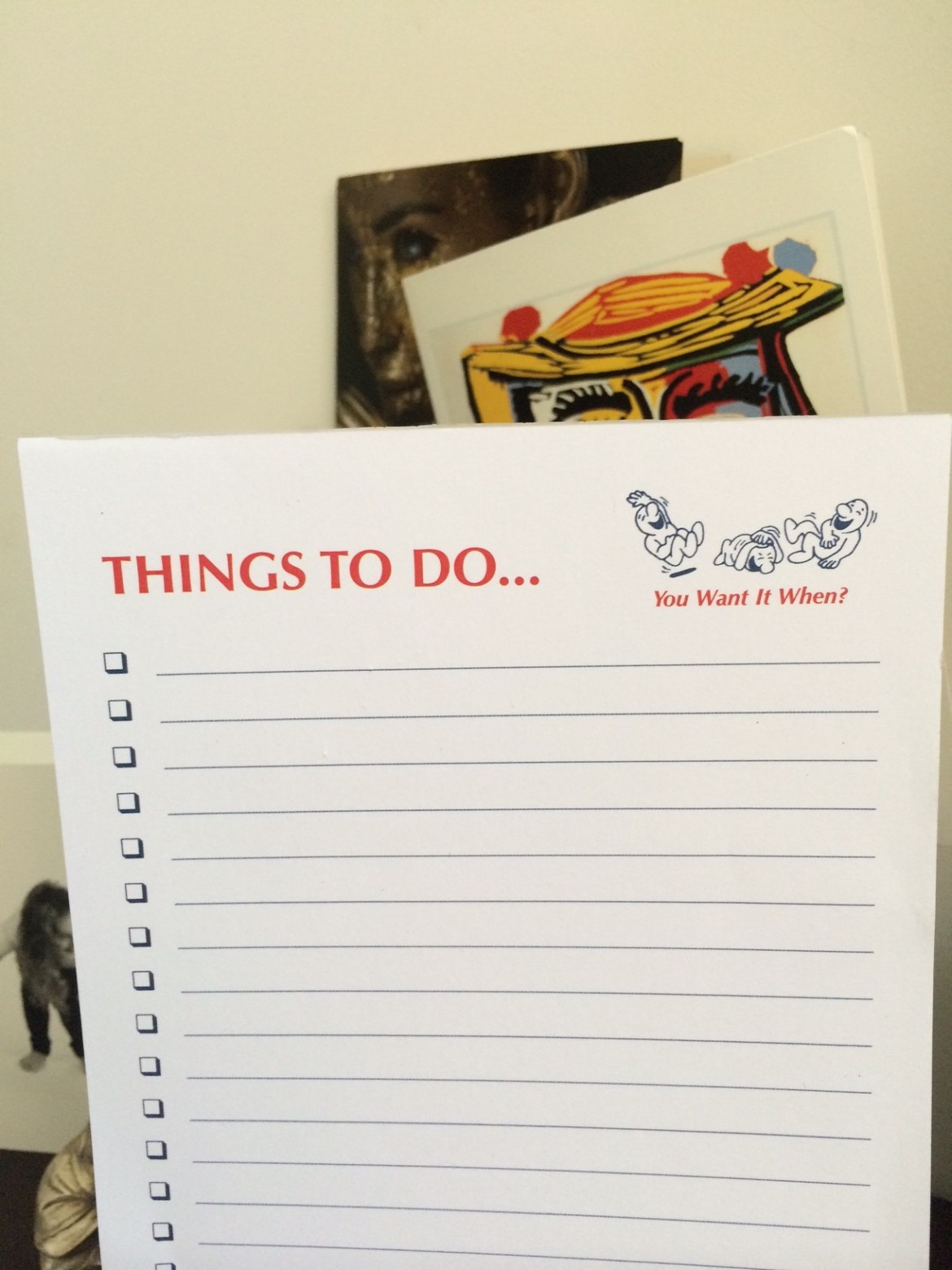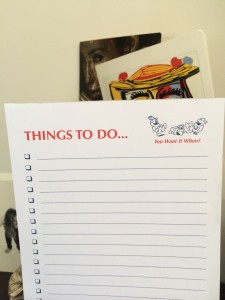Two of my three children are heading off to two different sleep away camps tomorrow for the first time. We’re all excited and a little anxious, and there’s another emotion in the mix that I alone am experiencing: relief. Relief that I managed, very late in the game, to procure, label and pack up the highly prescribed contents of three enormous trunks; complete the requisite doctor’s visits and endless camper profile, medical and insurance forms; and emerge from that descent into organizational hell with my sanity relatively intact.
Full disclosure: I am not a checklist kind of person. Every assessment I’ve ever taken confirms that my thinking preferences fall on the “people” and “ideas” side of the spectrum. “Data” comes next, and “process” is a distant last place. In Myers-Briggs terms, I prefer spontaneity to planning ahead, and novelty to order and routine. That said, I’ve worked hard over the years to develop solid analytical and organizational chops to complement my creative thinking and high EQ. I have strong executive function capabilities, and I’m disciplined when it comes to meeting deadlines and managing projects at work. At home, however, I’m not as focused on tempering my default tendency to do things at the last minute. Which is why – I now realize – the whole Project Camp process turned out to be such an ordeal for me.
Key lessons learned for next year to avoid expensively overnighting hundreds of name labels from Canada and being, for most of my waking hours over a recent 48-hour period, an exceedingly unpleasant person to be around? Here are my top five. As you’ll see, they’re broad enough to cover just about any situation where having a plan, and allies to support you, can dramatically improve your odds of success. And your frame of mind.
1. Talk to the experts: When it comes to packing, it turns out there are best practices – like sealing everything, by category, into labeled 2.5 gallon Ziploc bags that prevent clothes from getting wet and can be used to store gear between summers – that set the veterans apart from the neophytes. Figure out who you know has this type of specialized knowledge and pick their brains early. Don’t wait, like I did, to stumble on these tips accidentally, the night before you begin packing.
2. Get organized: If I had created two files, early on in the process, where I stashed the steady stream of forms, manuals and instructions that came our way throughout the year from both camps (that I initially ignored and then couldn’t find), it would have saved me hours of logging onto parent website portals to look up important facts and deadlines that I didn’t have at my fingertips.
3. Chunk up the work, make a timetable and stick to it: Spending half an hour, maybe an hour at the most, after creating said files to identify all of the different tasks that needed to get done between the fall and the spring and then assigning due dates to each of them would have made for a much smoother, more pleasant and cheaper process.
4. Build a strong, unified team: Had I communicated a coherent, comprehensive vision to my husband of what Project Camp entailed, why I needed him on board and then proactively and calmly delegated discrete tasks, I’m certain he would have been happy to make the time to do them. Really. Conversely, enlisting (or worse, badgering) people to help at the last minute who haven’t been brought into the loop, have limited resources to contribute and have a different interpretation of what success looks like does not create ideal teaming conditions.
5. Maintain a healthy perspective: I’m not sending my children into combat, where having the right gear could literally mean the difference between life and death. This is camp. Most of what they bring will get dirty, damaged or destroyed. If they are missing something “essential,” they can borrow it – or improvise on their own to come up with a creative alternative. Which is one of the great life skills that summer camp is meant to foster, right?










